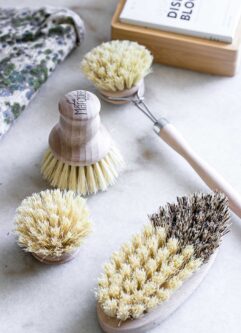6 Eco-Friendly Alternatives to Kitchen Sponges
Ditch traditional throw-away kitchen sponges for more eco-friendly cleaning options! In this guide we’re sharing what kitchen sponges are made of and 6 better-for-you (and the planet) options for keeping your kitchen squeaky clean.
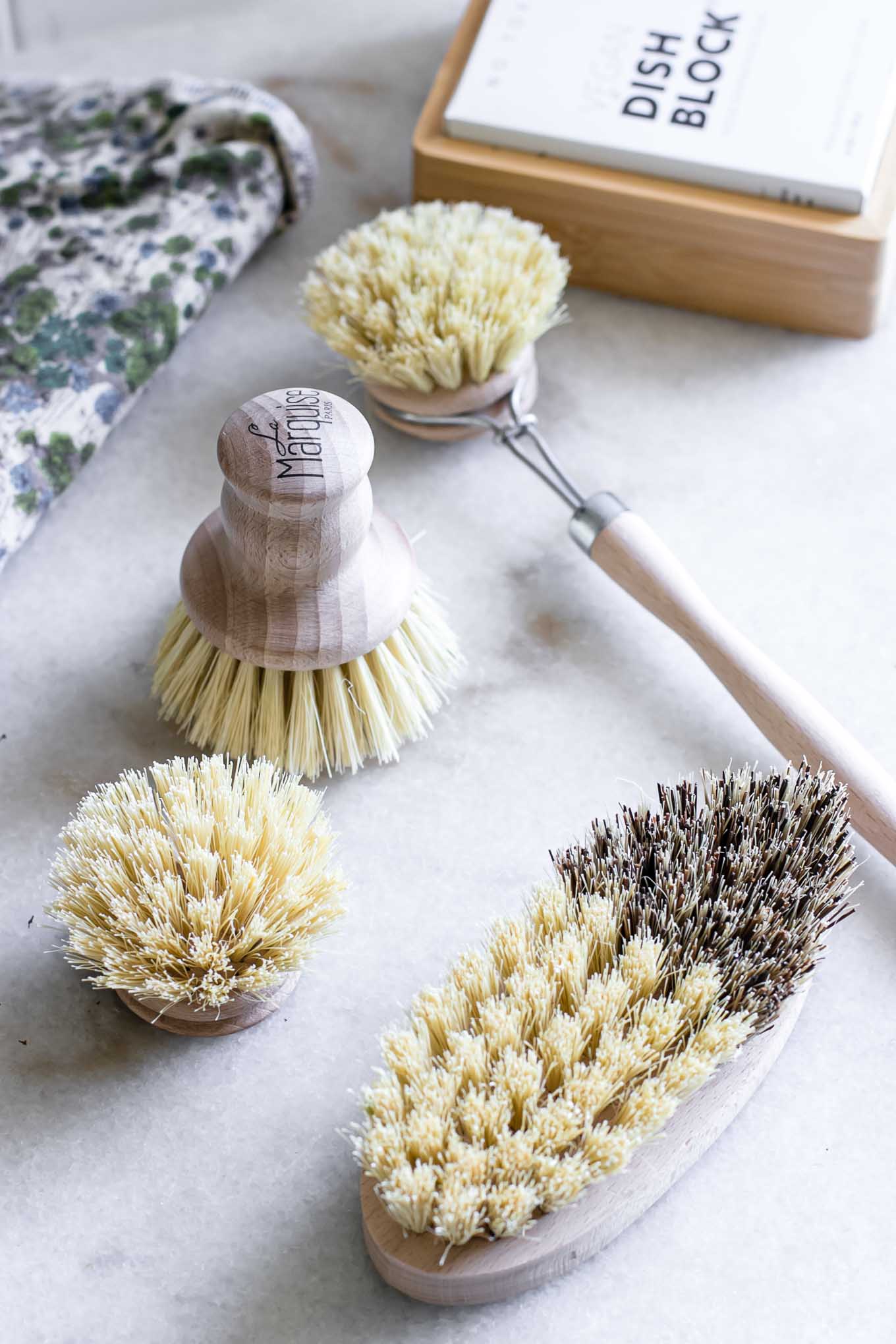
Want to Save This Recipe?
Enter your email & I’ll send it to your inbox. Plus, get new plant-based recipes in your inbox!
By submitting this form, you consent to receive emails from Fork in the Road.
Trying to go low waste in the kitchen but are still attached to your kitchen sponges? Traditional kitchen sponges have many kitchen uses, so many new conscious consumers struggle when trying to replace them with sustainable alternatives.
👉 That’s why we’re gathering our favorite eco-friendly sponge alternatives to help you ditch the synthetic material – while keeping your kitchen clean at the same time. Read on for our sustainable sponge suggestions!
🧽 What are kitchen sponges made of?
Traditional kitchen sponges are made of a mixture of cellulose, a naturally-occurring wood fiber, and synthetic materials like polyethelene plastic mesh to provide durability and a scouring surface. This combination is what makes up the typically yellow and green colored sponges that are most commonly sold today.
Why kitchen sponges are not environmentally friendly
In addition to its mixture of natural of synthetic materials, kitchen sponges are also usually treated with antibacterial agents to prevent the growth of harmful bacteria (and then spreading it around your kitchen each time you clean). Add to this that most kitchen sponges have a lifespan of tops a few weeks – and they’re packaged in plastic – and you can see how these are not a low waste option for keeping your kitchen clean.
In addition, antibacterial agents added to sponges typically include triclosan, and according to the Environmental Working Group, “the U.S. FDA advisory committee has found that household use of antibacterial products provides no benefits over plain soap and water, and the American Medical Association recommends that triclosan not be used in the home, as it may encourage bacterial resistance to antibiotics.”
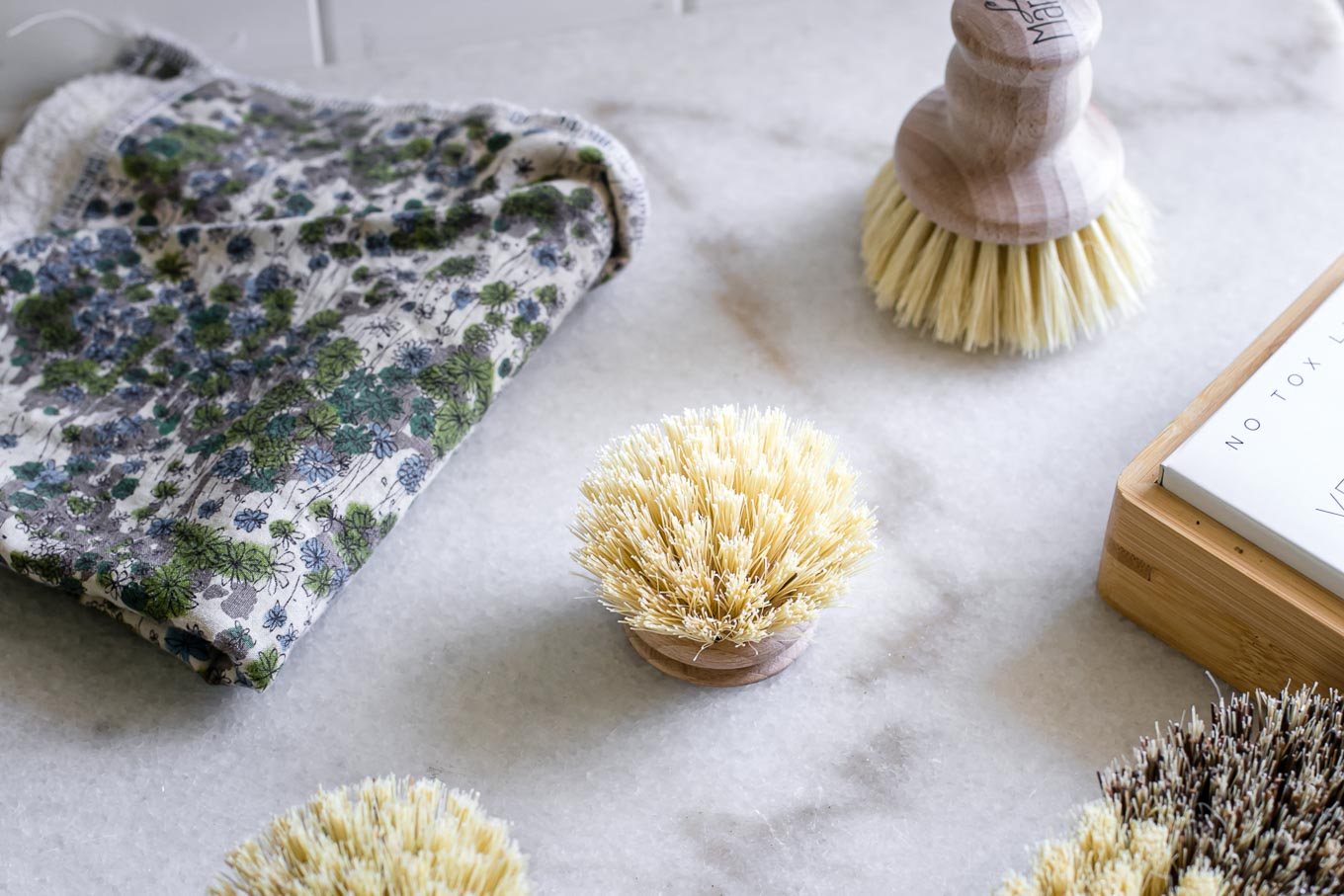
♻️ 6 eco-friendly alternatives to kitchen sponges
🪵 Natural sponges
Natural cellulose sponges are made from (you guessed it) cellulose, or wood pulp. These sponges are made with small holes and crevices that allow them to absorb liquids like water and soap to help clean dishes and countertops.
While they aren’t as absorbent as synthetically made traditional sponges, they work well as an all-purpose sponge to clean dishes, kitchen and bathroom surfaces, and to absorb spills.
Because cellulose sponges are made from naturally-occurring materials they will eventually break down and disintegrate, which means they can be composted as long as they are clean of any oils. However, some cellulose sponges may have some non-biodegradable materials included in processing, so keep an eye out for ingredients when purchasing.
🧺 Reusable cloth sponges
Sponges made from natural cloth and other materials are becoming more popular as zero-waste sponge alternatives. Many of these sponges are handmade by small producers, so in addition to reducing waste by switching to reusable cloth sponges, you are also supporting small businesses (and typically woman owned small shops).
Cloth sponges are reusable and can be thrown into the washing machine, meaning one cloth sponge can last years as opposed to a traditional sponge that lasts weeks to a month at most.
🧹 Wooden dish brushes
If you want to avoid sponges altogether, but still want to get a good scrub going, wooden dish brushes are a great alternative that will quickly remove food and other debris from dishes before washing.
A wooden dish brush is not going to last you forever, of course. After all, the bristles will eventually wear down and become less effective and reliable. However, a number of wooden dish brushes are designed so that the handle can be removed from the head, and thus allow you to discard and replace the brush instead of the entire handle. And many bristles are made of naturally-occurring materials that will decompose over time, unlike plastic brushes.
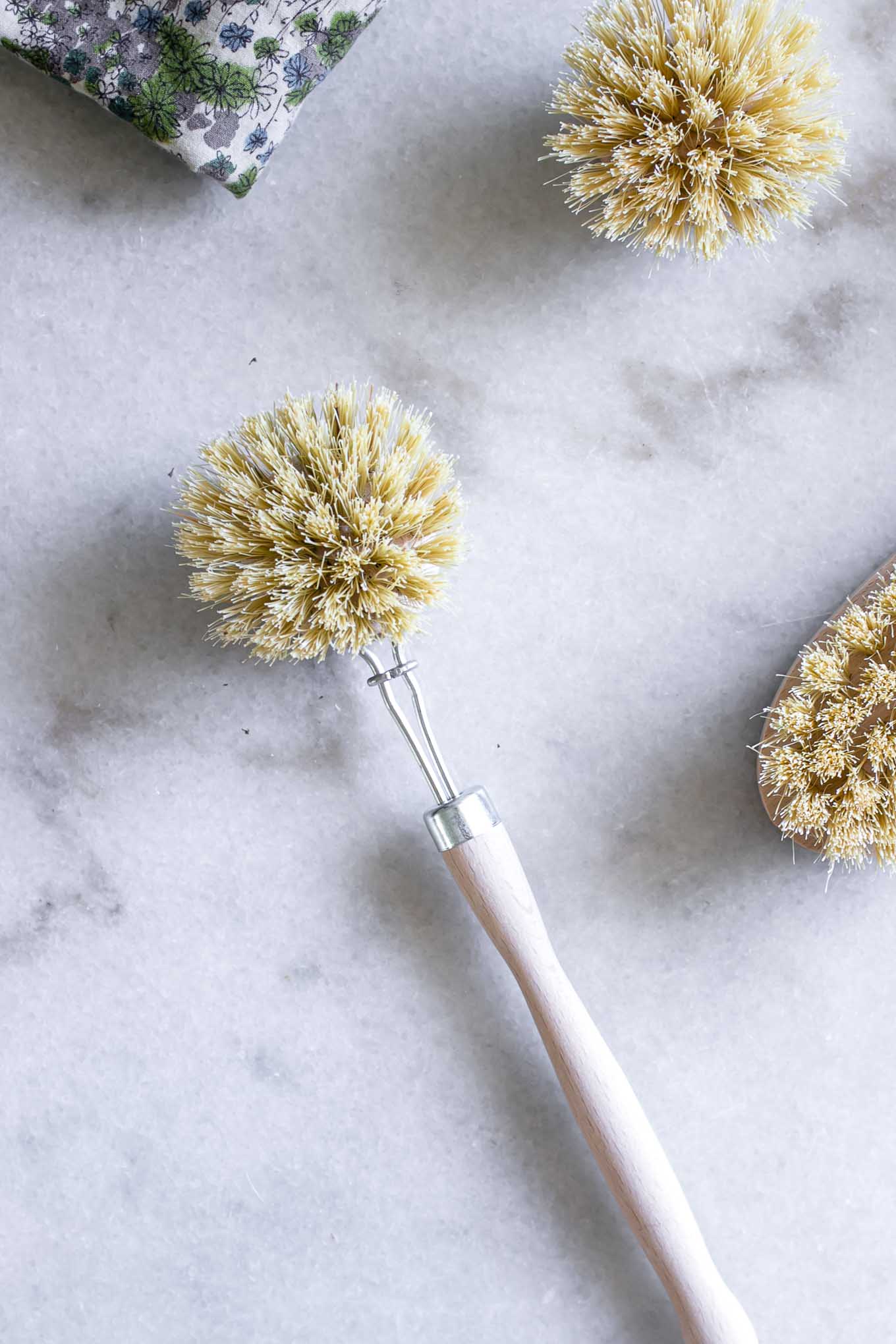
🍽 Reusable dish rags
Dish rags may not be the most advanced replacement for kitchen sponges, however transitioning from washing dishes and kitchen surfaces from a sponge to a washable and reusable rag is an excellent way to reduce waste.
Rags last considerably longer than a kitchen sponge, and can even be created by reusing something you would otherwise be discarding. For example, if you have an old t-shirt that you are trying to get rid of, repurposing it to help you scrub your dishes clean is a good way to make your old clothes last longer. Downcycle your old towels and shirts into your next kitchen cleaning cloth!
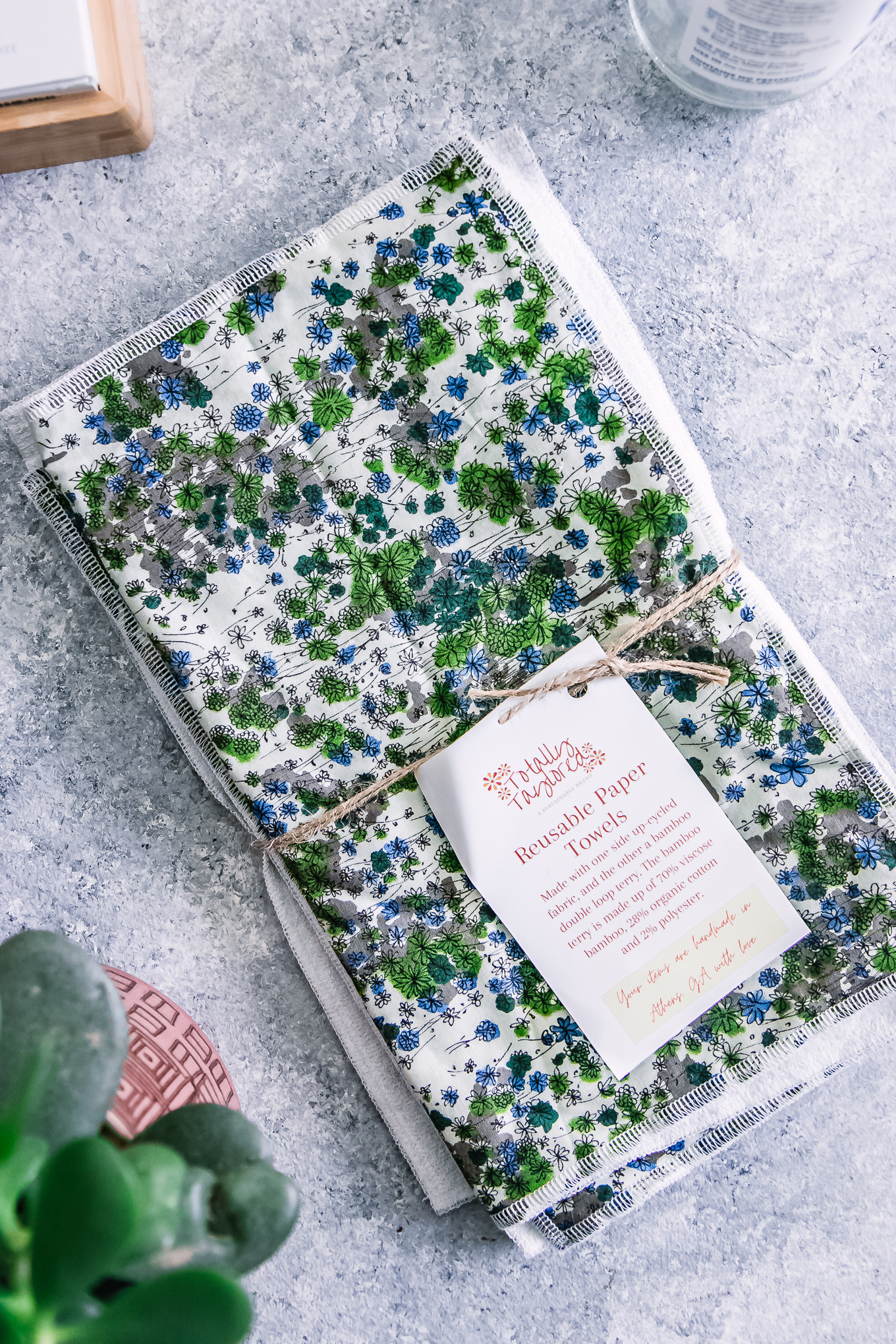
👉 Copper scour
For those dishes that are simply too hard to get the gunk off, a copper scour is a valuable tool to have on hand. As with all the other kitchen sponge alternatives, the copper scour is good for more than just its efficacy as a scrubbing tool. Copper is an eco-friendly metal, being 100 percent recyclable, and thus makes your copper scour a sustainable tool that you don’t need to toss out with the kitchen sponge.
🥥 Scours made from natural materials
While copper scours may be a better choice than buying traditional sponges, there are now many scour pads and brushes made from natural materials like coconut that are less impactful on the environment to produce.
These scour pads are great options for dirty pots and pans and deep cleaning, but be warned that they do not hold up as long as you’d hope (I tried one recently cleaning a very dirty cast iron skillet and the pad was tearing after one strong use). This doesn’t mean you shouldn’t use these scour pads as they are typically better options than metal scours, but they may not be durable for some uses.
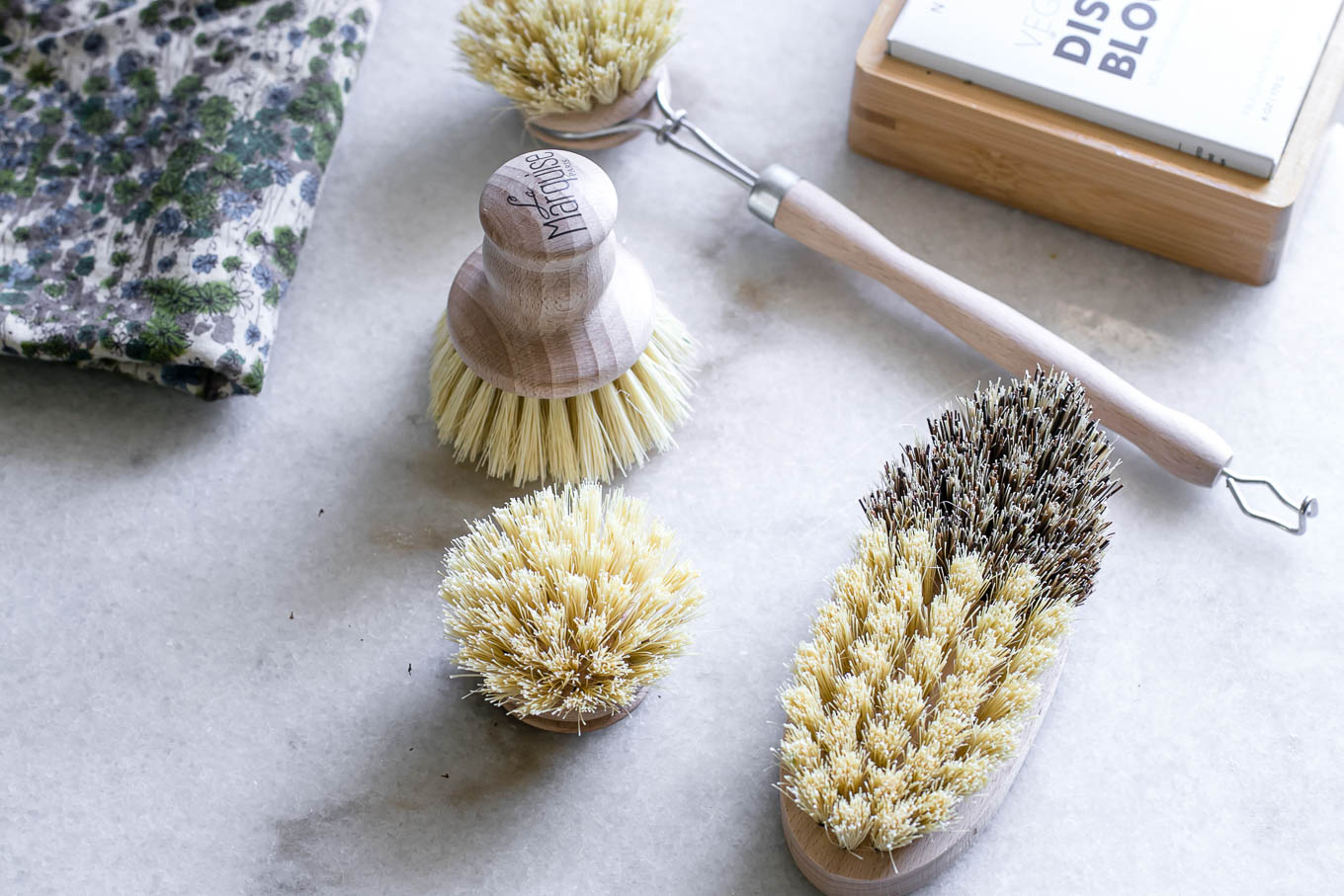
👉 More eco-friendly kitchen alternatives
Look for more sustainable alternatives to traditional kitchen tools? We’ve got you covered:
- 4 Eco-Friendly Alternatives to Aluminum Foil
- 4 Eco-Friendly Alternatives to Plastic Ziplock Bags
- Is Parchment Paper Eco-Friendly?
♻️ Want more inspiration for going green in the kitchen? Join the Green Living Community for plant-based recipes, sustainable kitchen hacks, and get our FREE guide to meal planning to reduce food waste!

